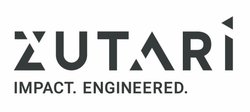THOUGHT LEADERSHIP ARTICLE - Prevention is better than cure
The South African Institution of Civil Engineering (SAICE) 2022 Infrastructure Report Card for South Africa gave the country a ‘D’ grade, the lowest on record, indicating that most of the country’s infrastructure is at ‘risk of failure’ or ‘unfit for purpose’. Economic and social infrastructure such as water, sanitation, roads, health, and education continues to deteriorate in our provinces, cities, and towns.
We have seen maintenance delivery fail nationwide. It is clear we need to approach the management of our infrastructure differently to what we have done in the past. South Africa needs to balance the money and attention we are giving to building new infrastructure with the need to look after what we already have.
I believe we will benefit from a national approach, and that the private sector can manage the complexity and apply the effective controls needed for correct execution. The current maintenance challenge is an opportunity for us to create jobs. We can advance the skills of our people on the ground through structured training and build local businesses with effective supplier development programmes. This is being done in small pockets of success but needs to be done at a national scale.
We are spending money on infrastructure, but we need to make sure that what we must spend is spent wisely. Minister of Public Works and Infrastructure Sihle Zikalala announced in May 2023 that the Department has a R8.782 billion budget for the 2023/24 financial year. It is the Department’s mandate to oversee the implementation of infrastructure projects to stimulate economic growth.
Infrastructure South Africa (ISA) has completed R21.4 billion worth of projects to date, mainly in the roads, energy, and human settlement sectors. There is R313.5 billion worth of projects currently under construction and R295.2 billion worth of projects in procurement.
In addition, R300 billion worth of green hydrogen projects are in the pipeline, with the first feasibility reports anticipated by end 2023. South Africa is rolling out the largest programme for the procurement of renewable energy and resource efficiency in Africa, known as the Integrated, Renewable and Resource Efficiency Programme (iREREP).
However, Minister Zikalala noted: “As a country, we cannot always be building. We will introduce innovative approaches to ensure that infrastructure maintenance by all spheres of government is proactively planned and that budget ringfenced for infrastructure is spent for what it is earmarked for.”
Research has shown that proactive and preventative maintenance provides a positive economic return on investment and is labour intensive, which represents low-hanging fruit for our country that is suffering from infrastructure reliability and performance problems as well as high unemployment.
Zutari adds value to many of the largest asset owners on the continent with our asset management capability and are very proud of that. Our experience has shown that managing existing infrastructure requires a systematic and sustained effort underpinned by technical capacity and tight management controls, which is why I believe a national-scale programme that leverages private sector capability is urgently needed.
It is evident that government in general and local government in particular has struggled with the implementation of effective maintenance programmes and the likelihood that this situation will improve in the near term is highly unlikely.
The private sector requires basic infrastructure to be in place and to be properly maintained for it to operate and grow our economy. Mining, for instance, have recently claimed substantial revenue losses due to the current dysfunctional logistics network. The current situation can be turned around with the application of expertise and technical capacity that exists in the private sector, but we need a strategic approach led by government and we need to start taking action.
As part of our contribution to develop a skills pipeline for the industry, Zutari has a robust graduate programme that brings in 120 to 150 graduate engineers a year. We are committed to nurturing young talent, assisting them to obtain their professional certification and encouraging them to have a positive impact in shaping the future as engineers.
Ends
Notes to the Editor
To download hi-res images for this news article, please visit http://media.ngage.co.za and click the Zutari link to view the company’s press office.
About Zutari
As an infrastructure engineering and advisory practice, we believe infrastructure has unparalleled potential to create enduring impact. Never more relevant, this potential can be realised only if we plan, design, deliver, and manage infrastructure in ways that maximise its value. Our work in water, transport, energy, resources, and built-environment infrastructure does just this – helping to nurture thriving communities, growing economies, and healthy environments. At Zutari, we understand that radical impact does not just happen; it requires more of us to connect differently, work smarter, and stay rooted.
We connect differently. Our broad collective of in-house experts connects across traditional disciplines to provide integrated results. We collaborate with clients, partners, and end-users, leaning into diverse perspectives to create superior solutions - together.
We work smarter. Our people lead the industry. We draw from deep technical skills, accrued over decades, and embrace the transformative power of digital technology to find simpler, better, and more innovative ways to deliver value.
We stay rooted. Few can rival our local capacity and understanding. Building on solid foundations, now 90 years in the making, we are trusted to shape locally relevant solutions through our extensive footprint in Africa and the Middle East.
At Zutari our people connect differently, work smarter, and stay rooted. Working in this way, we reliably deliver impact through infrastructure, making the world a better place – one project at a time.
Zutari Contact
Malebusa Sebatane
Marketing & Communications Manager
Zutari
Email: Malebusa [dot] sebatane [at] zutari [dot] com
Tel: (012) 427 2000
Media Contact
Rachel Mekgwe
Senior Account Executive
NGAGE Public Relations
Phone: (011) 867 7763
Cell: 074 212 1422
Email: rachel [at] ngage [dot] co [dot] za
Web: www.ngage.co.za
Browse the NGAGE Media Zone for more client news articles and photographs at http://media.ngage.co.za

